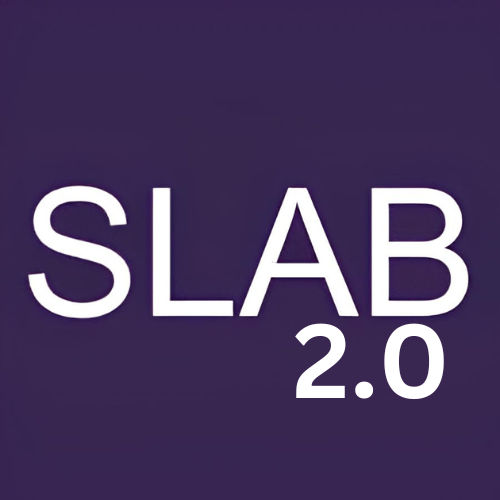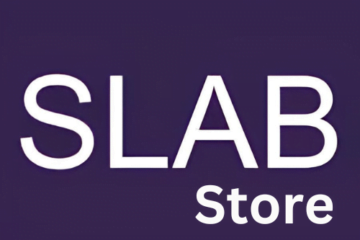Three undergraduate SLAB staff members attended AWP in Tampa this year: Managing Editors Danielle McDermott and Jess Holzapfel, and Assistant Managing Editor Jenna Moses. In addition to working at the SLAB bookfair booth, they attended several panels. Here are their takes on a few favorites.
Creatures from the Black Lagoon: Feminist Writing from the Deep South of Florida
Jess: This panel was interesting in the fact that it centered around a writer’s ties to a geographic location, specifically the southern region of Florida. An aspect of writing that has always wowed me is when a writer manages to perfectly capture a geographic location that is special to him or her, and the writers on this panel managed to do that. In writing about their collective place of origin, these writers showed their audience not only how humorous writing from the southern region of Florida can be, but also how pertinent their voices are because of the unique political climate from which they write.
Jenna: The part that I liked most about this panel was that each writer had the opportunity to tell us their stories about the environment in which they grew up and how it has influenced their writing today. The women shared the different pieces that they had worked on and it was interesting to hear their descriptions of Florida through different genres. My favorite had to have been the prose piece in which the author told the problematic story of a woman whose beloved dog died. The author used her knowledge of the environment in Florida to further the story and create a very realistic, and really weird, story about a grief-obsessed woman and her frozen, dead dog. I couldn’t remember if she said that the story was based off of a real event in Florida or not, but after hearing all of the authors share their crazy stories from that state, I wouldn’t even be surprised if it was real.
Danielle: The discussion on how these writers were so influenced by their location, specifically Florida, and the blending of cultures due to the wide variety of people was really enjoyable and fascinating to hear. Having a personal interest in blended cultures, influences, and the evolution of new identities and experiences from blending, I was able to really connect with these panelists and the stories they read. Each story was vivid and offered even more opportunity to blend the listener’s own experiences and understanding with the information and tales presented by the panelists through something some concrete yet also abstract as the location of southern Florida.

Writing the Invisible: Genderqueer Writers on Writing and Representing Outside the Gender Binary
Jess: The message of this panel was similar to the messages shared in other conversations about minority groups and adequate representation: writers should strive to acknowledge that genderqueer individuals—and by extension genderqueer characters—are multifaceted, varied, and, most importantly, worth writing about well.
Both panelists not only addressed the treatment of genderqueer characters by writers but the treatment of genderqueer writers by publishing companies and literary magazines. One panelist mentioned that they have had trouble in the past getting literary magazines to represent their gender adequately even after they requested that the literary magazine do so.
Toward the end of the panel, the panelists and moderator all shared their personal recommendations for books and authors that manage to represent genderqueer characters well. As a person who can claim only Ursula K. Le Guin’s Left Hand of Darkness as a book she has read that addresses genderqueer identity in any way, shape, or form, some of the panelists’ recommendations have thankfully made it on to my own reading list.
Danielle: The panel offered a welcoming and deeply curious environment as the panelists discussed what it meant to themselves to be genderqueer and the need for writers to acknowledge the experiences and existence of genderqueer people. There’s a need for these stories to be told and shared as not only are their stories important and worth writing and reader, but people who may need these stories can find themselves in the media that our culture is supposed to share. The suggestions for genderqueer novels featuring or written by genderqueer characters was certainly a highlight as I’m always looking for book recommendations! I also found the discussion focusing on whether non-genderqueer writers should and/or can write authentic genderqueer characters to be interesting. It was also very encouraging as the panelists offered various resources and ideas on how to begin research in writing authentic genderqueer characters.

Writing Complex Female Characters for Young Audiences
Jess: As a reader, what turns me off of YA fiction the most is how female characters are portrayed. Oftentimes, if they are highly intelligent, they are the resource used by the protagonist (usually male) to achieve his own personal goals (e.g. The Magicians or Harry Potter). If the female character is physically attractive, then she is generally relegated to the role of love interest or subject to constant comments on her physical form (think cheerleader here). And if the female character just happens to be the protagonist she sits passively waiting to be swept off her feet or wastes time pining over her love life (e.g. Dorothy Must Die, Twilight, any Disney fairytale).
What was refreshing about this panel is that it addressed where YA literature is going. The presenters on this panel each talked about their own work—work that includes strong, complex female characters who are not stuck in the role of sidekick or love interest or passive princess. One of the presenters talked extensively about her novel, one in which a young girl struggles to compete on the school wrestling team not because she has highly-skilled competition but because she is a female operating in a male-dominated realm. Although this writer was writing a piece with a complex female character in mind, she highlighted the need to not short the development of the male characters in her story. Female characters do not become more complex by male characters losing their complexity. The male characters, in fact need to have the complexity of learning how to be allies and advocates for women through creating the space for them to exist equally.
Another writer on the panel spoke about writing female characters that people do not like. She talked about how, throughout her writing process, the editors of her work encouraged her to make changes to a character that was not well-liked even though she felt an attachment to the character. She speculated that the reason the character was not well-liked was because she did not operate the way a woman is often expected to (i.e. she was not nurturing and gentle).
This panel (and its high attendance rate) gives me hope that there will be more and more strong, complex female characters appearing in YA literature soon.
Jenna: While the panel was interesting simply because they were discussing how to write female characters that were empowering to younger readers, I really enjoyed seeing the authors speak so passionately about their work and the messages that they are trying to convey. Women and girls have come a long way, both in the real world and literary world. Going to a panel of all women and listening to their writing advice (and maybe some life advice too) was informative and empowering. The authors did a nice job of explaining their processes of characterization through their protagonists and supporting characters (which were both male and female). The woman that was writing the story in which the female protagonist joins the wrestling team explained to us that she paid close attention to her own child’s actions and feelings when creating her characters. These women were clearly passionate when reading and explaining their own works, which were of all different subjects and different kinds of strong female characters. I felt very fortunate to have the opportunity to learn from and listen to so many real life strong women with true talents for writing.

